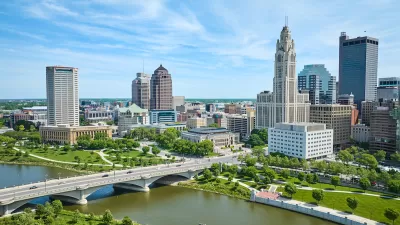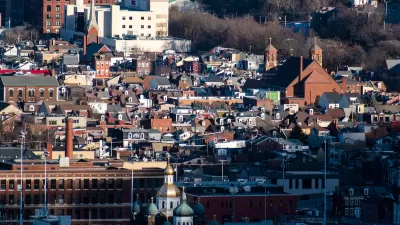City officials want to streamline the permitting process for developers looking to build housing.

City officials in Columbus, Ohio are announcing “major changes” coming to the city’s zoning code, which hasn’t been significantly updated in over 70 years, according to an article by Bill Bush in The Columbus Dispatch.
“City officials said at a public meeting Aug. 21 that the proposed zoning changes under its ‘Zone In’ effort are meant to streamline the process, making it easier for developers to gain city approval without the need to obtain variances — or exceptions to the rules routinely made by City Council on a case-by-case basis.” Other cities are approving similar zoning reforms to boost their housing supplies and improve affordability.
Details of the plan are yet to be finalized, but Keven Wheeler, an assistant development director for growth policies in Columbus, says the first step will be targeting major transportation corridors for zoning reform to allow for residential development and reduce parking requirements.
Bush notes that “The new Columbus zoning code will — by design — deliver more urban density to provide more housing.” Critics like real estate broker Judy Minister say the city needs more single-family homes, noting that 22,000 apartment units were under construction in the Columbus area in 2022.
“Following passage of the new zoning code for the corridor areas, city officials plan to begin to draft an updated code for neighborhoods and other areas of the city.”
FULL STORY: Columbus overhauling more than 70-yr-old zoning code to streamline process for developers

Maui's Vacation Rental Debate Turns Ugly
Verbal attacks, misinformation campaigns and fistfights plague a high-stakes debate to convert thousands of vacation rentals into long-term housing.

Planetizen Federal Action Tracker
A weekly monitor of how Trump’s orders and actions are impacting planners and planning in America.

In Urban Planning, AI Prompting Could be the New Design Thinking
Creativity has long been key to great urban design. What if we see AI as our new creative partner?

Massachusetts Budget Helps Close MBTA Budget Gap
The budget signed by Gov. Maura Healey includes $470 million in MBTA funding for the next fiscal year.

Milwaukee Launches Vision Zero Plan
Seven years after the city signed its Complete Streets Policy, the city is doubling down on its efforts to eliminate traffic deaths.

Portland Raises Parking Fees to Pay for Street Maintenance
The city is struggling to bridge a massive budget gap at the Bureau of Transportation, which largely depleted its reserves during the Civd-19 pandemic.
Urban Design for Planners 1: Software Tools
This six-course series explores essential urban design concepts using open source software and equips planners with the tools they need to participate fully in the urban design process.
Planning for Universal Design
Learn the tools for implementing Universal Design in planning regulations.
Gallatin County Department of Planning & Community Development
Heyer Gruel & Associates PA
JM Goldson LLC
City of Camden Redevelopment Agency
City of Astoria
Transportation Research & Education Center (TREC) at Portland State University
Jefferson Parish Government
Camden Redevelopment Agency
City of Claremont





























